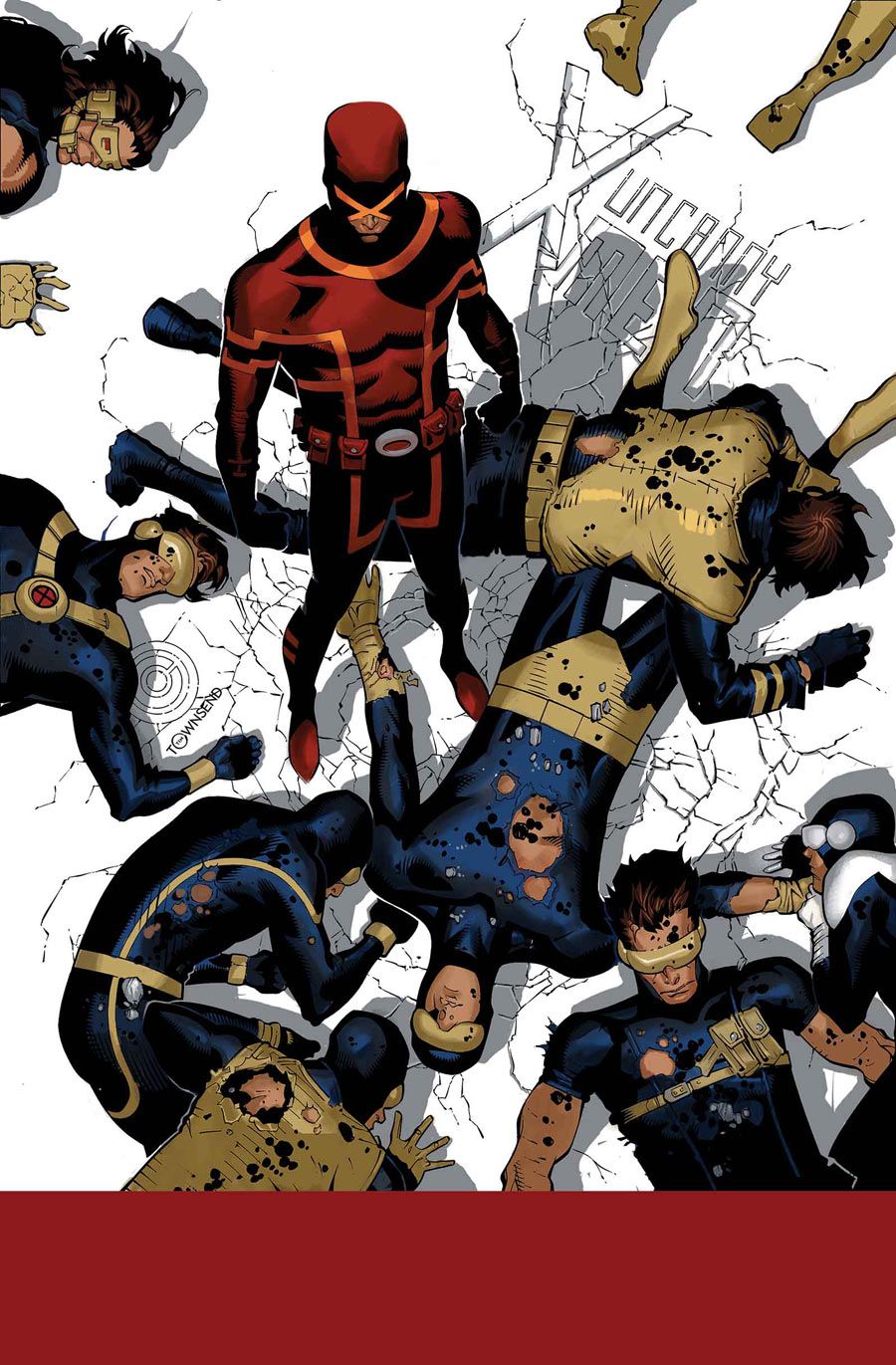The entirety of Brian Michael Bendis' run on "Uncanny X-Men" has been a character study of Scott Summers. As the former head of the franchise, Cyclops has had the weight of leadership placed on his shoulders since he was a teenager. As the writer approaches his endgame with the X-Folk, Bendis and Chris Bachalo's "Uncanny X-Men" #32 finds Summers a king in an empty castle, holding a throne in name only.
In this issue, the Mutant Revolution that Scott promised is proved to be an empty threat from a man who sees himself as the only way forward for an entire species. Bendis unfolds this reveal in the present with Alex Summers, himself dealing with some jarring physical and psychological changes from the events in "Uncanny Avengers," and in the past with a parallel conversation with Scott's chosen band of recruits, plus a very personal final moment with Emma Frost. Though many writers before him have viewed Cyclops as a stoic force behind the battle lines, Bendis gives the reader a look at the character as a king forced to the front line, a man of action who knows that making no decision at all leaves his entire species at the brink of extinction.
Under Morrison's pen over a decade ago, mutants were a cultural phenomenon, the horizon over which mankind would soon be cresting. After "House of M," Cyclops has taken an offensively defensive approach to the world around him. He strikes before being struck, revealing his long-term plan to be the tail shake of a rattlesnake and nothing more, an old prospector with a shotgun threatening the kids to stay off his lawn. Bendis weaves the story delicately, forcing Summers to live through these revelations twice as Alex pushes for answers. When Goldballs lashes out at him, Cyclops accepts the attack with no retort, his guilt and self-loathing overtaking his own sense of leadership.
Bachalo has a lot of talking head work to do here and breaks the scenes into small cinematic bites. Rare are the wider page spreads in this issue; when they are employed, they are used to express Scott's loneliness, a man standing on an empty snowfield. Bachalo's unique storytelling style is instead focused on faces and reactions here, tight shots of characters who suddenly feel adrift as their leader has forsaken them to the cause they'd been told was the old way. As Hijack walks out on the X-Men, he breaks the panel, shattering the bond the team had with Cyclops.
Bendis saves his A-level dialogue for the final scene between Scott and Emma, as the White Queen finally opens up about her feelings to her ex-boyfriend. The back-and-forth is painful and feels real; Emma had finally let a man into her heart, only for him to prove that he never felt worthy of that place. Regardless of her own demeanor, a woman who can manifest a near-indestructible coating around her exterior clearly has issues letting down her guard and has now been proven right. As she jabs at Scott, her words strike harder than punches, revealing her own inability to filter what she sees in Scott's mind -- a great view from Bendis on the telepathy -- and how Scott remains the stubbornly focused man he's always been, merely wanting to know when she reacquired her own ability to read minds. It's like she was never there, and then she isn't.
Alex and Scott have both fallen hard in recent times and their ability to finally find comfort in their own bond -- a ray of hope on the horizon of the series -- is a great place to leave this issue. Scott looks to Alex for answers for the first time in his life and finds that asking for help isn't a sign of weakness but a true sign of leadership. Hopefully, through re-establishing his relationship with his brother, Scott will begin to allow his self-loathing to settle enough to realize that an open hand can help the world more than a closed fist.

